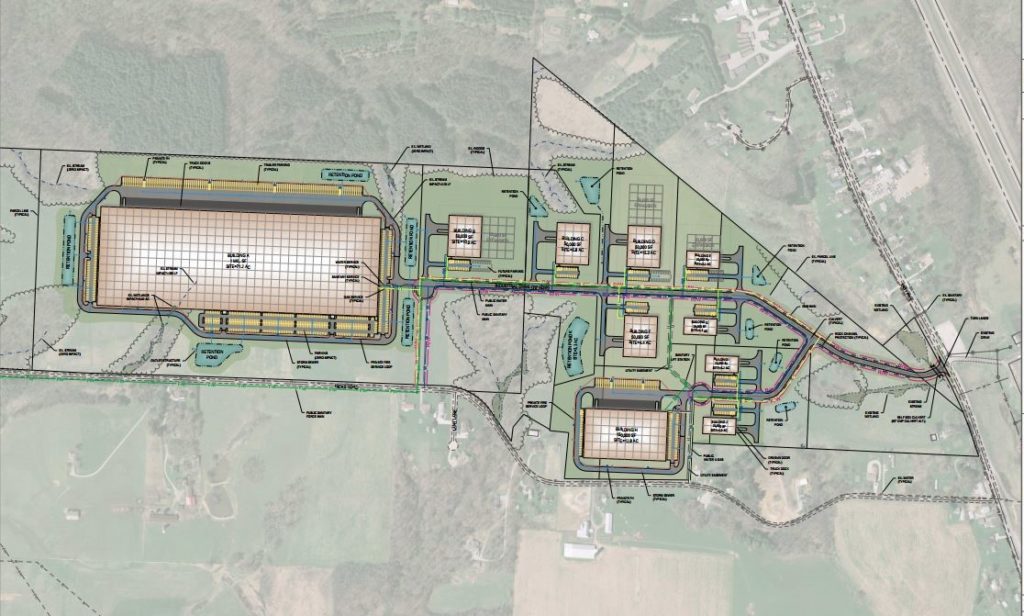We don’t do spec in Washington County. So now what?

Lately i’ve been grappling with the realities of the environment in which I live and work.
For the last two years I’ve tried to lead and push our community in the direction I have seen other communities move, and find success. Admittedly, I have not spent much time in struggling/economically stagnant communities, but I ventured that the sound economic development practices that have worked so many other places would also work here.
Now 2 years into this gig I see just how futile my efforts have been and quite possibly how wasteful of time. I’ve known it for a while, and fear what it means for our long-term prospects, but I cannot pretend that it isn’t one of our most defining characteristics.
Our community, fiscally and philosophically does not engage in speculation when it comes to finance. We pay cash, we save, we largely avoid debt, and we never gamble.
This is admirable and fiscally responsible and flies in the face of current trends to amass large sums of debt and seek to maximize gain. If our community were a financial mechanism it would be an index or mutual fund, definitely not a blue chipper. Communities like ours will continue to survive and maybe thrive so long as they remain true to their principles and avoid indebtedness and become service outlay hawks in their local governments. Washington County if it maintains this approach will very likely persist despite the most grim of economic projections related to population, labor participation, transportation access, etc.
Unfortunately, the economic development framework we operate in rewards the blue chippers and more high yield funds. By its very nature the programs we encounter on a daily basis encourage loans and debt to be taken on via state agencies. It is the design of the program to provide lower interest loans to applicants, so the state and other apparatuses can share in the success of business growth. For a bulk of our state this is an essential program and one that has generated significant returns in both wage/job growth but also publicity.
For our community however, these loan programs are an afterthought. We pay and we pay in cash for what we need.
Where I get real nervous about this philosophy, is when I see our mounting infrastructure repair needs and businesses who have scaled past their cash on hand capacity. Big ticket items are difficult to pay for when you are programmed to save up to pay for them. This concept requires years of diligence, good economic performance, and minimal disaster that would seek to deplete your reserves.
Here is how this conversation sounds when I hear it.
Andy: So your business is doing great. That is awesome to hear. What kind of needs do you have?
Business owner: Well, we should probably expand, buy some new equipment and add another product line.
Andy: Are you planning on doing that? Can we help?
BO: I’d like to, but I don’t have the money in reserve to buy that piece of equipment and won’t for a while. That machine costs $450,000 and I can’t hire the employees and pay for the machine at the same time.
Andy: We can help with that JobsOhio or a slew of local banks have loan programs that will provide your funds for equipment needs .
BO: I don’t want to go into any kind of debt and I most definitely don’t want any government handouts.
And that is where the conversation more or less sputters.
I am unsure how we bridge this gap, or if it is one we should even try to bridge. What I do know is that currently in our communities (both public institutions and private businesses) we face a mounting stack of repair and rebuild needs, from sewer plants to schools. Our local governments haven’t had the luxury to save due to enhanced service costs, pension outlays, and the actual disasters. Our private businesses have seen their ability to plan for future projects take a hit due to rising health care costs and overall construction costs. We’ve been squeezed from all points.
So what is there to do when we prefer to save and pay without taking on debt, avoid risk, and see state grant and loan programs as government handouts?
Honestly, I am not sure. It is something we are trying to wrap our heads around at the Port Authority. If our community philosophically and fiscally abhors speculative development and risk, what is left is maintenance of our existing profile, redevelopment of languishing properties, and maybe some housing repair programming.
Everything is on the table and I would love community feedback.
So we don’t want to play the business attraction game in providing sites for construct. What should we do for you? We’re open to all ideas.
